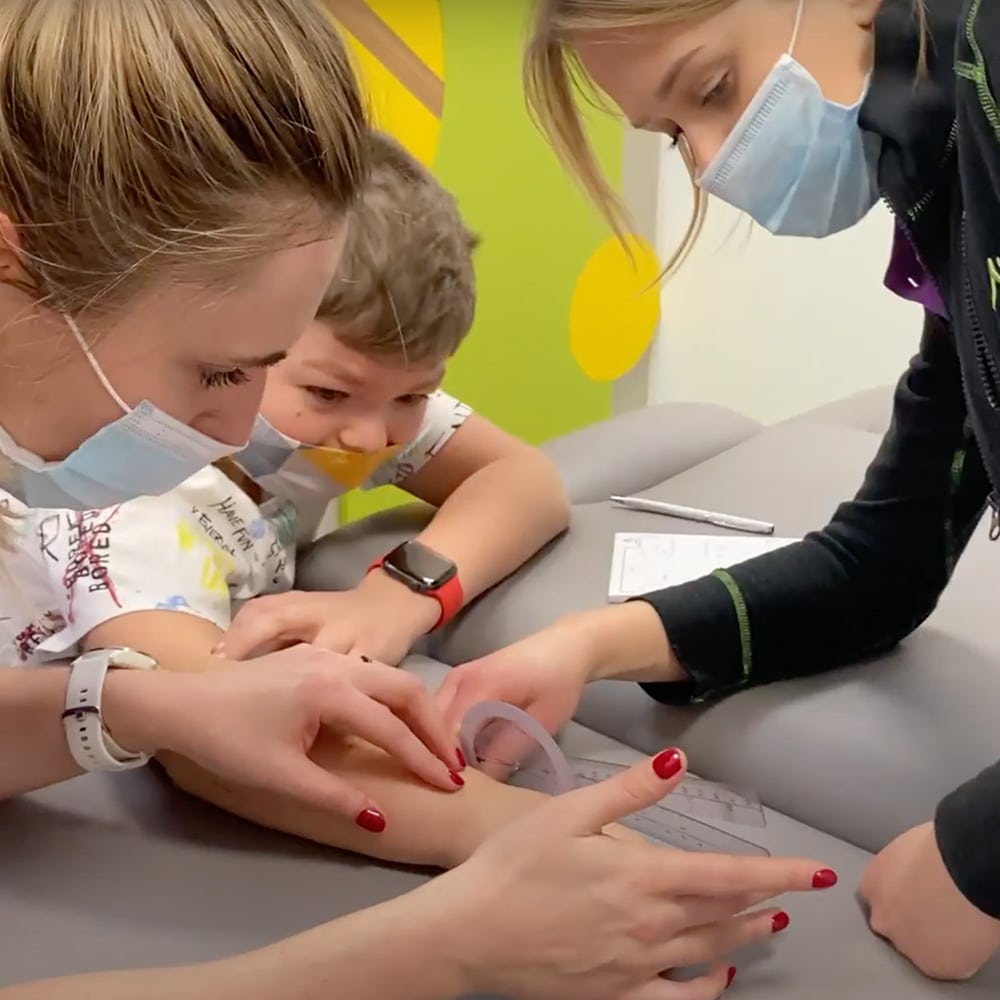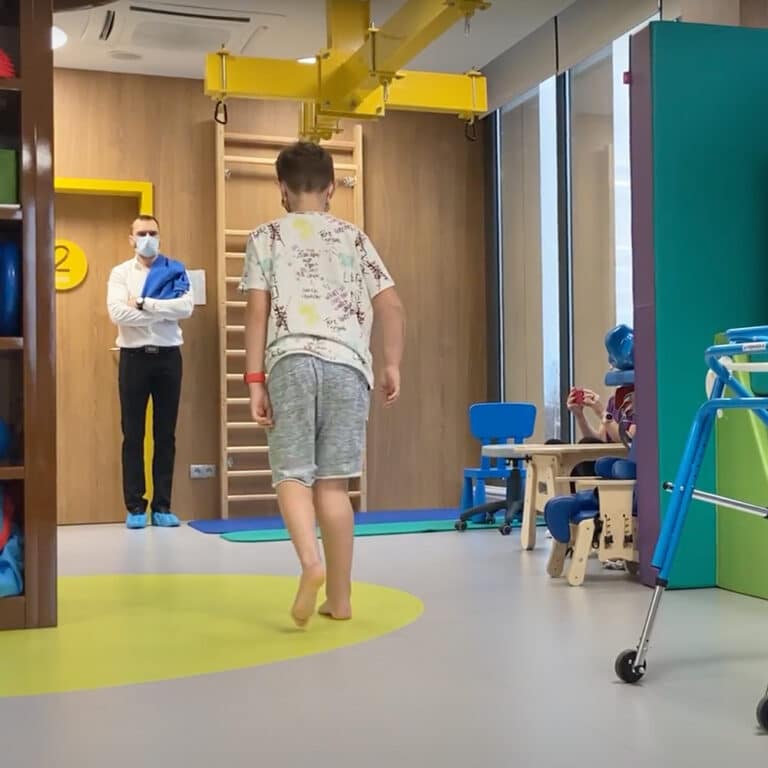

Multiple Hereditary Exostoses (MHE) is a benign condition characterized by the growth of many bony protrusions, known as osteochondromas, on the surface of bones. These growths occur frequently near where tendons attach to bones. MHE is an autosomal dominant genetic disorder primarily affecting the EXT1 and EXT2 genes. It is a rare condition that occurs in about 1 in 50,000 births.
MHE can lead to progressive skeletal abnormalities in the extremities, including unilateral or bilateral side shortening. This can result in a discrepancy in limb length and low height. Individuals with MHE are also at an increased risk of experiencing complications due to changes in bone growth. For example, if one bone grows faster or slower than the other, or osteochondromas develop on one or both bones, it can lead to difficulties. Osteochondromas can also put pressure on the opposite side of a joint, causing it to dislocate or become misaligned. In some cases, the growths can also influence on the joint itself, affecting joint motion.
Diagnosing MHE involves a combination of X-rays, clinical examinations, and genetic testing. However, based on current technology, around 15% of patients with MHE may have “normal” genetics.
It is important to consider the patient as a whole and provide comprehensive treatment, care, and support. People with MHE should not have to endure ongoing joint or nerve pain. Medical treatment for MHE is possible since it is caused by a single gene defect that affects the production of a specific chemical called heparin sulfate (HS). HS affects numerous signaling pathways in bones and cartilage, like FGF, Wnts, Ihh, BMP, TGFβ, and SH2. Researchers are exploring ways to target these pathways with drugs. BMP signaling is a promising therapeutic target because it is crucial for developing bones and cartilage. Palovarotene (PVO) is a selective agonist of the retinoic acid receptor γ (RARγ) that could be an effective treatment for MHE. We are currently conducting a randomized experiment to demonstrate the effectiveness of PVO as a treatment for MHE.
Trust in the Paley European Institute to provide exceptional care and help you live life to your fullest potential.
